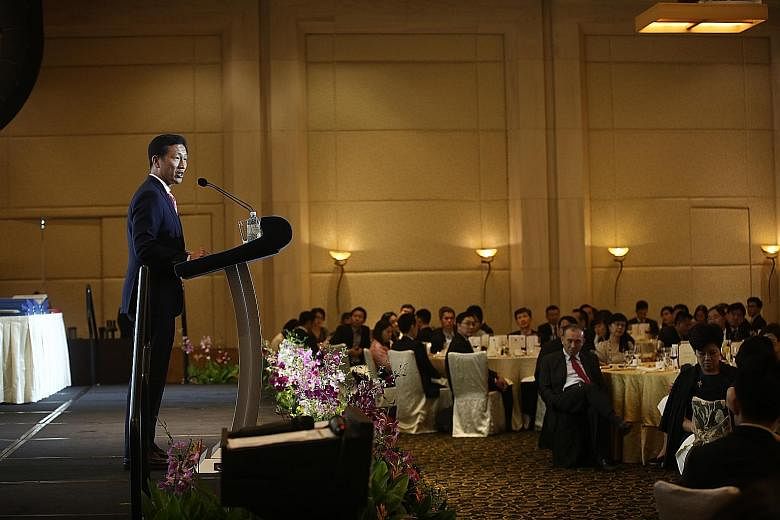At a recent dinner, a senior civil servant asked Mr Ong Ye Kung what the fourth-generation ministers' expectations of civil servants were.
Relating this anecdote to about 300 officers and guests at the Administrative Service dinner yesterday, Mr Ong said he canvassed several of his colleagues.
The short answer was: "Our expectations are no different from the earlier-generation ministers." The basic direction of policies must come from elected leaders, but the public service must provide clear-eyed analyses of opinions and ensure effective implementation, he said.
Mr Ong highlighted the strong trust undergirding the working relationship between the political leadership and civil service at the end of his 30-minute speech, and spelt out four ways to ensure this stays.
These should guide the interactions between political leaders and the civil service, said Mr Ong, a former Administrative Service officer who entered politics in 2011.
First, civil servants and ministers should challenge each other.
When coming up with policies, officers should offer all suggestions, including radical ones. "Don't try to second-guess the policy preferences of the ministers," said Mr Ong, urging officers to express their recommendations honestly.
The same applies to ministers, who must be open to challenge, confront trade-offs squarely, and debate the merits of various solutions.
Second, civil servants must understand ground realities and limits.
This means some policies may sound more efficient on paper, but may not be able to be implemented.
Mr Ong cited the idea of a traffic congestion control system relying on Electronic Road Pricing without ownership controls like certificates of entitlement. "Such policy papers were actually written before."
Third, civil servants must make things happen within the directions given. This was how the HDB took off, and free trade pacts were signed, he said, as enterprising civil servants "took risks and assumed responsibility, at every level".
And political leaders must stand up to defend unfair criticisms of civil servants, whose ethos prevents them from having a political voice to defend themselves, he said.
Lastly, political leaders and civil servants alike must share the common goal of building a better life for all Singaporeans. "We are all in public service, not for ourselves, but to serve our nation."
Charissa Yong

